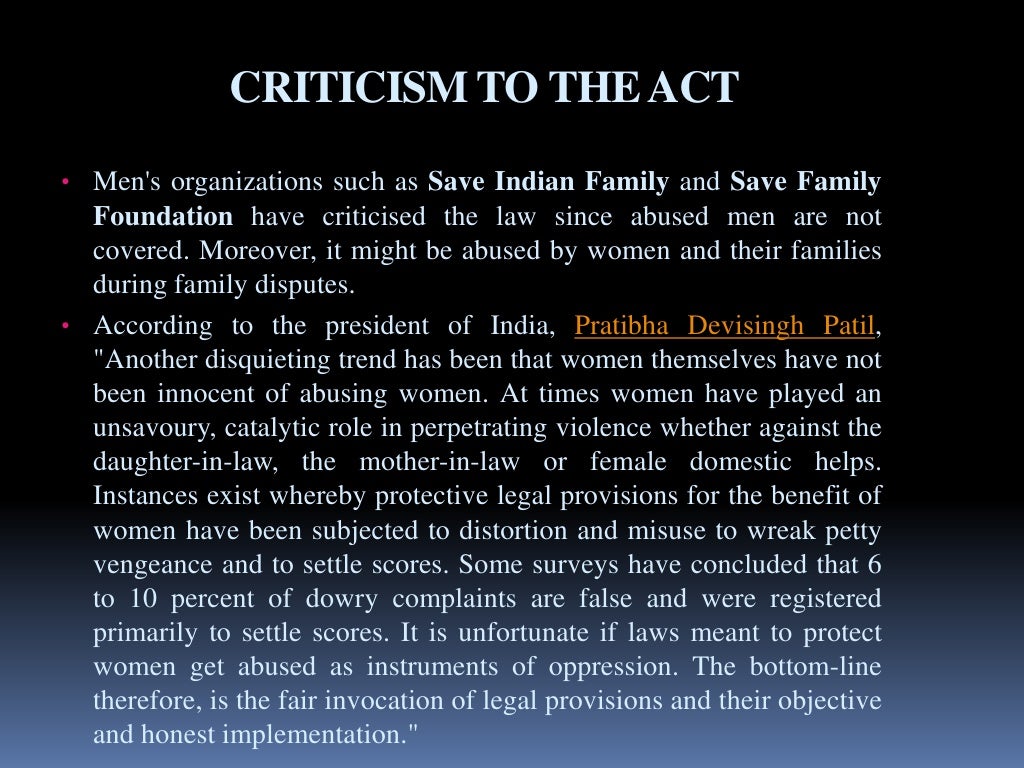
The Supreme Court in Kunapareddy, held that the purpose of enacting the DV Act was to provide a remedy in the civil law for the protection of women from being victims of domestic violence.

Further, in an attempt to stall the proceedings, the Respondent can at any point approach the High Court under Section 482 of the Cr.P.C to quash/stay the DV proceedings. The said question is important because if the proceedings are considered purely criminal, one would then have to endure the rigorous procedure of Cr.P.C-which includes taking cognizance of the complaint by the Magistrate, mandatory physical appearances of parties on hearings, difficulty in procuring ex-parte interim orders among others.
THE DOMESTIC VIOLENCE ACT 2005 CODE
This has brought about a dilemma as to whether the nature of the proceedings is criminal or civil, and if the same should be decided based on the nature of reliefs provided under the law or based on the code of procedure by which the law is governed. In order to make the system accessible to the survivor, Section 26 of the DV Act provides for the survivor to prefer an application before a Civil Court, Family Court or Criminal Court.

While the reliefs such as protection, residence, and monetary orders are civil in nature, the proceedings are governed by the Criminal Procedure Code or procedure as decided by the Court as per Section 28 of the DV Act.

The Protection of Women from Domestic Violence Act, 2005 (“ the DV Act”) was intended to be a “ civil legislation” which focuses on providing effective and immediate remedies for women experiencing domestic violence from intimate relationships, and making people accountable for the same.


 0 kommentar(er)
0 kommentar(er)
